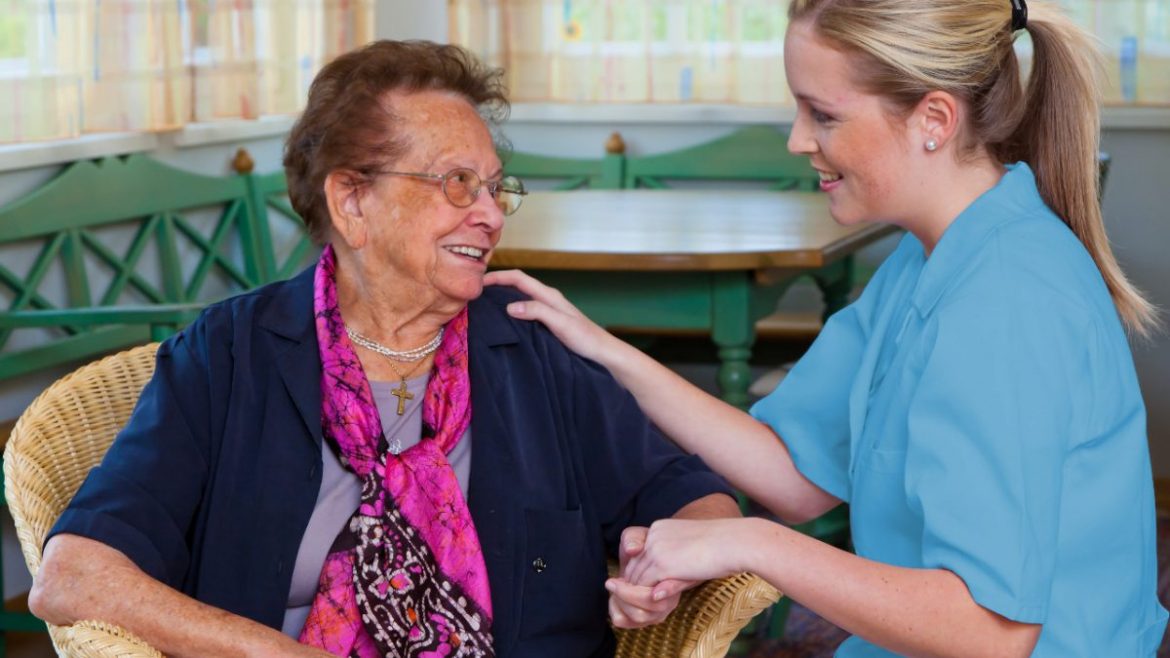Caring for a sick elderly person requires a compassionate and knowledgeable approach. It involves addressing their physical, emotional, and social needs while ensuring their overall well-being. In this comprehensive guide, we will explore various strategies and practical tips to provide the best care possible for your loved one.
- Understanding the Elderly Person's Condition:
Before embarking on the caregiving journey, it is crucial to understand the specific illness or condition affecting the elderly person. Research and consult with healthcare professionals to gain insights into the symptoms, treatment options, and potential challenges associated with the condition. This knowledge will help you tailor your care approach accordingly. - Creating a Safe and Comfortable Environment:
A sick elderly person requires a safe and comfortable environment to aid their recovery. Ensure their living space is clean, well-ventilated, and free from hazards. Make necessary modifications to accommodate their mobility needs, such as installing handrails or ramps. Additionally, create a soothing ambiance by incorporating elements like soft lighting, calming colors, and familiar personal belongings. - Establishing a Routine:
Maintaining a consistent routine can provide a sense of stability and security for the elderly person. Establish a daily schedule for meals, medication, exercise, and rest. This routine will not only help them feel more in control but also assist in managing their symptoms and promoting overall well-being. - Assisting with Personal Care:
Personal hygiene and grooming are essential aspects of caring for a sick elderly person. Assist them with tasks such as bathing, dressing, and oral care, ensuring their dignity and privacy are respected. Use gentle and soothing techniques, and consider any physical limitations or discomfort they may experience. - Medication Management:
Proper medication management is crucial to ensure the elderly person's health and well-being. Create a system to organize and track their medications, including dosage instructions and any potential side effects. Set up reminders or alarms to help them take their medications on time. Regularly communicate with their healthcare provider to address any concerns or adjustments needed. - Emotional Support and Companionship:
Illness can take a toll on an elderly person's emotional well-being. Offer them emotional support by actively listening, showing empathy, and engaging in meaningful conversations. Encourage them to express their feelings and concerns. Additionally, provide companionship through activities they enjoy, such as reading, playing games, or listening to music. - Nutritious Diet and Hydration:
A balanced and nutritious diet plays a vital role in the recovery process. Consult with a healthcare professional or nutritionist to develop a meal plan that meets the elderly person's specific dietary needs. Ensure they have access to fresh fruits, vegetables, lean proteins, and whole grains. Monitor their hydration levels and encourage them to drink an adequate amount of water throughout the day. - Social Engagement and Mental Stimulation:
Isolation and boredom can negatively impact an elderly person's well-being. Encourage social engagement by organizing visits from friends, family, or support groups. Additionally, stimulate their mind through activities like puzzles, reading, or engaging in hobbies they enjoy. This will help maintain cognitive function and improve their overall mood.
Conclusion:
Caring for a sick elderly person requires a holistic approach that addresses their physical, emotional, and social needs. By understanding their condition, creating a safe environment, establishing routines, providing personal care, managing medications, offering emotional support, ensuring proper nutrition, and promoting social engagement, you can provide the highest quality care for your loved one. Remember, each individual is unique, so adapt these strategies to suit their specific needs and preferences.



